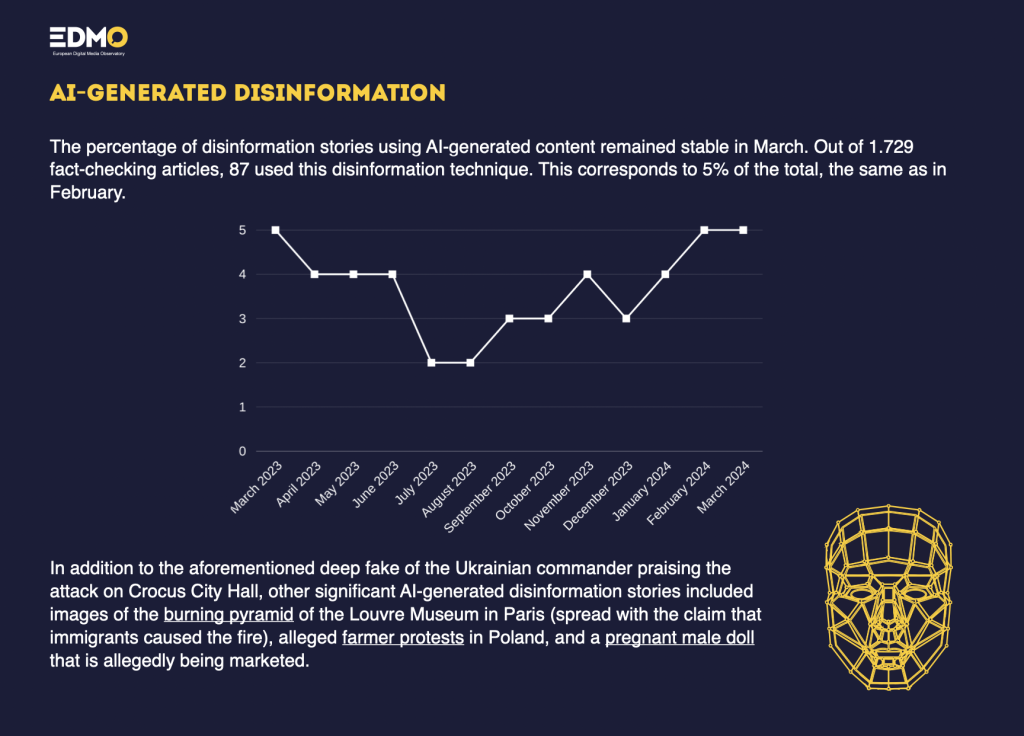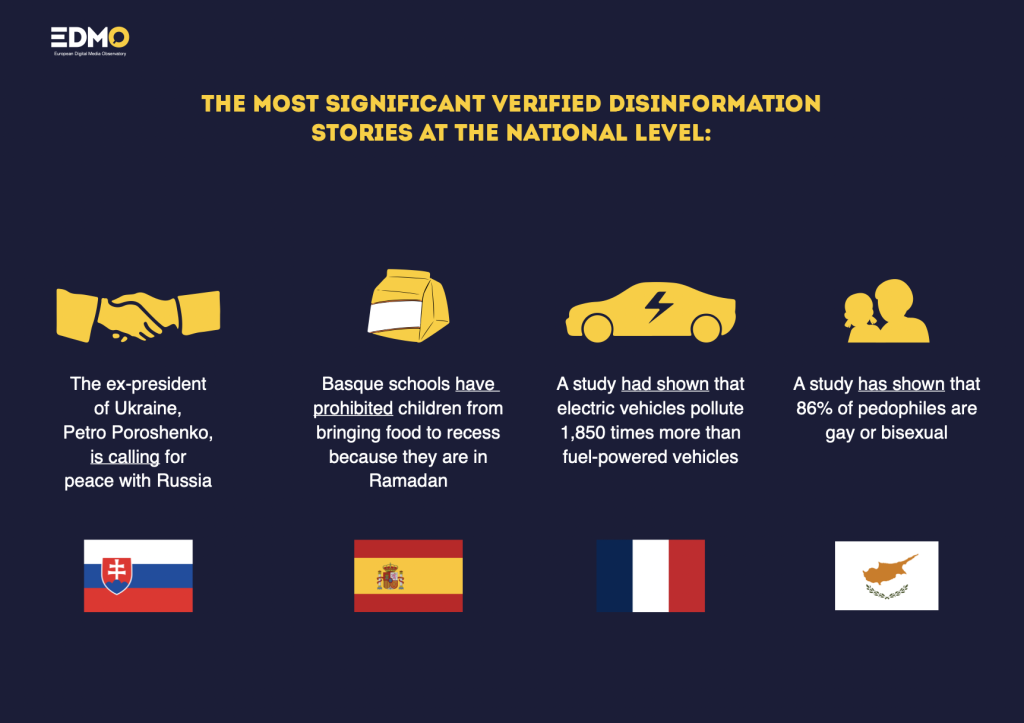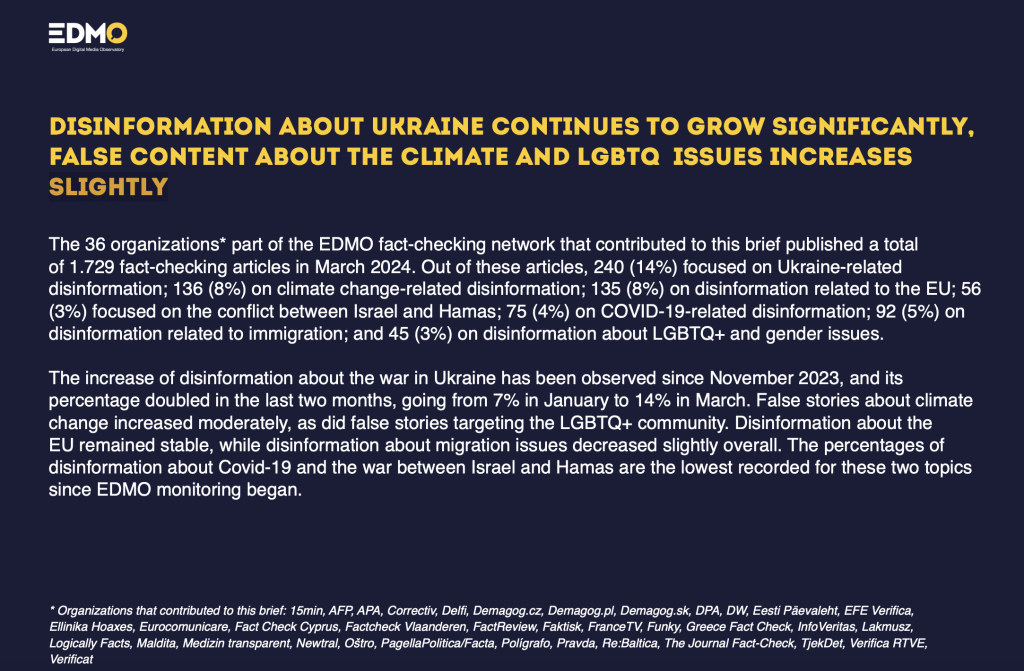
Macron’s statements about the possibility of sending european troops in Ukraine prompted waves of disinformation against him and about escalation
After the French President Emmanuel Macron openly discussed the possibility of sending European troops to Ukraine to help Kyiv win the war against Russia, first at the end of February and then again in mid-March, disinformation intensified two already existing narratives* targeting respectively the topic of a possible escalation – this narrative has been pushed by Russian officials as well – and Macron himself.
Escalation – In France a link circulated to a website, allegedly from the French Ministry of the Armed Forces, calling on 200,000 people to “sign up” for Ukraine; in Poland false news were circulated that
the country is going to war against Russia and it is ready to send troops in Ukraine, and that Poland has given competences to the European Union to decide on military conscription; in Hungary it was falsely claimed that a German general said they should expect war with Russia within 5 years; in Estonia it has been claimed that French troops are already moving toward Ukraine; in Spain and Portugal false news circulated about Portugal summoning reservists, under penalty of a fine of 500 euros if they do not go to fight in the war in Ukraine, and so on.
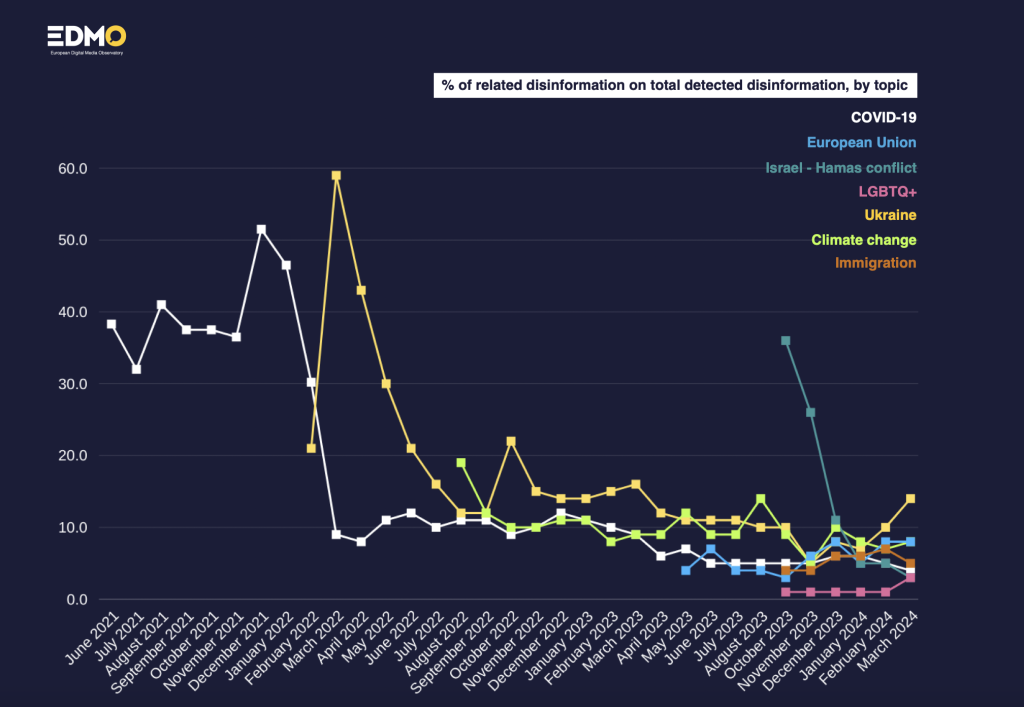
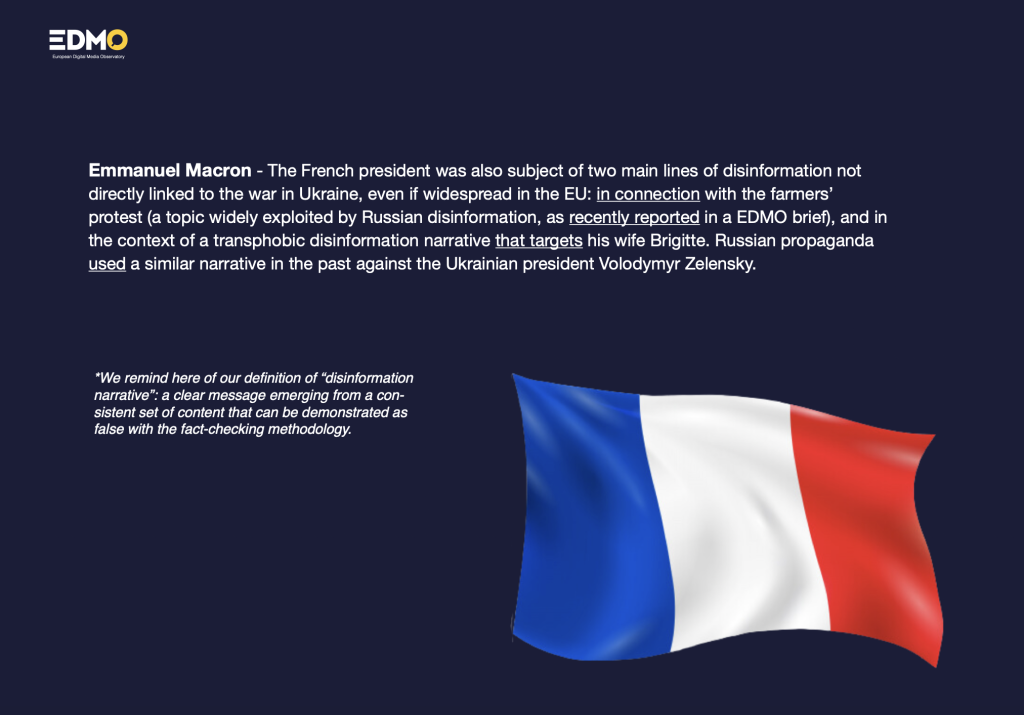
Disinformation about the attack at the Crocus City Hall and other anti Ukrainian narratives
The terrorist attack at the Crocus City Hall, a concert hall near Moscow, on March 22, triggered disinformation across Europe. A dedicated EDMO investigation showed how false stories followed the Kremlin’s efforts to blame Ukraine for the massacre claimed by ISIS. From the data collected for this brief, it emerges that some of those stories were among the most viral detected falsehoods in the EU in March.
Amid made-up content that alleged connections of the assaulters with Ukraine, very significant was an artificially generated deepfake – aired a few hours after the assault by Russian television channel NTV and then circulated on social media – of Oleksiy Danilov, the secretary of Ukraine’s National Security and Defense Council, praising the mass shooting.
Other relevant false stories targeting Ukraine in March alleged that Ukrainian ammunition, refugees and goods exports endanger EU citizens, that men subject to military service are fleeing the invaded country, that the war is staged, and even that the Ukrainians welcome Russian soldiers when they arrive.
